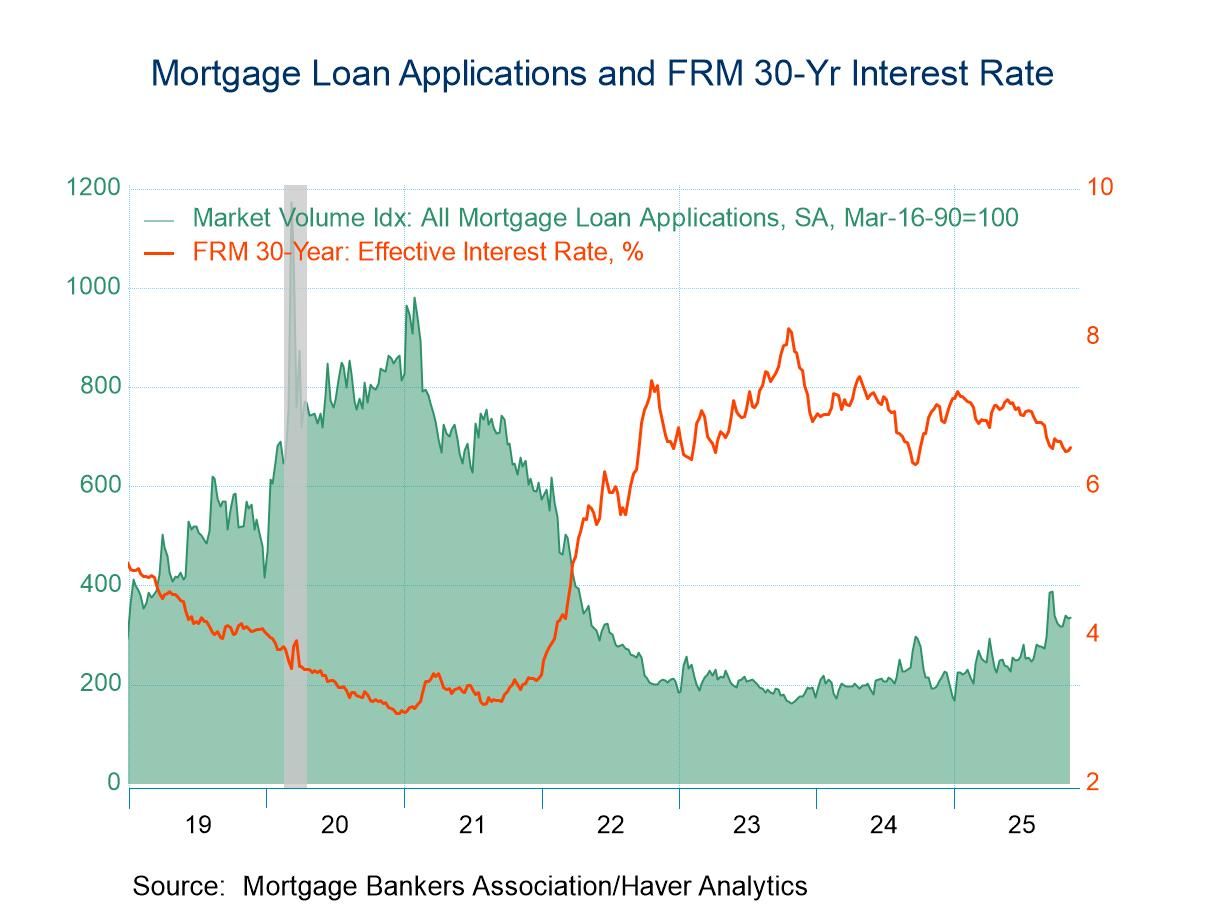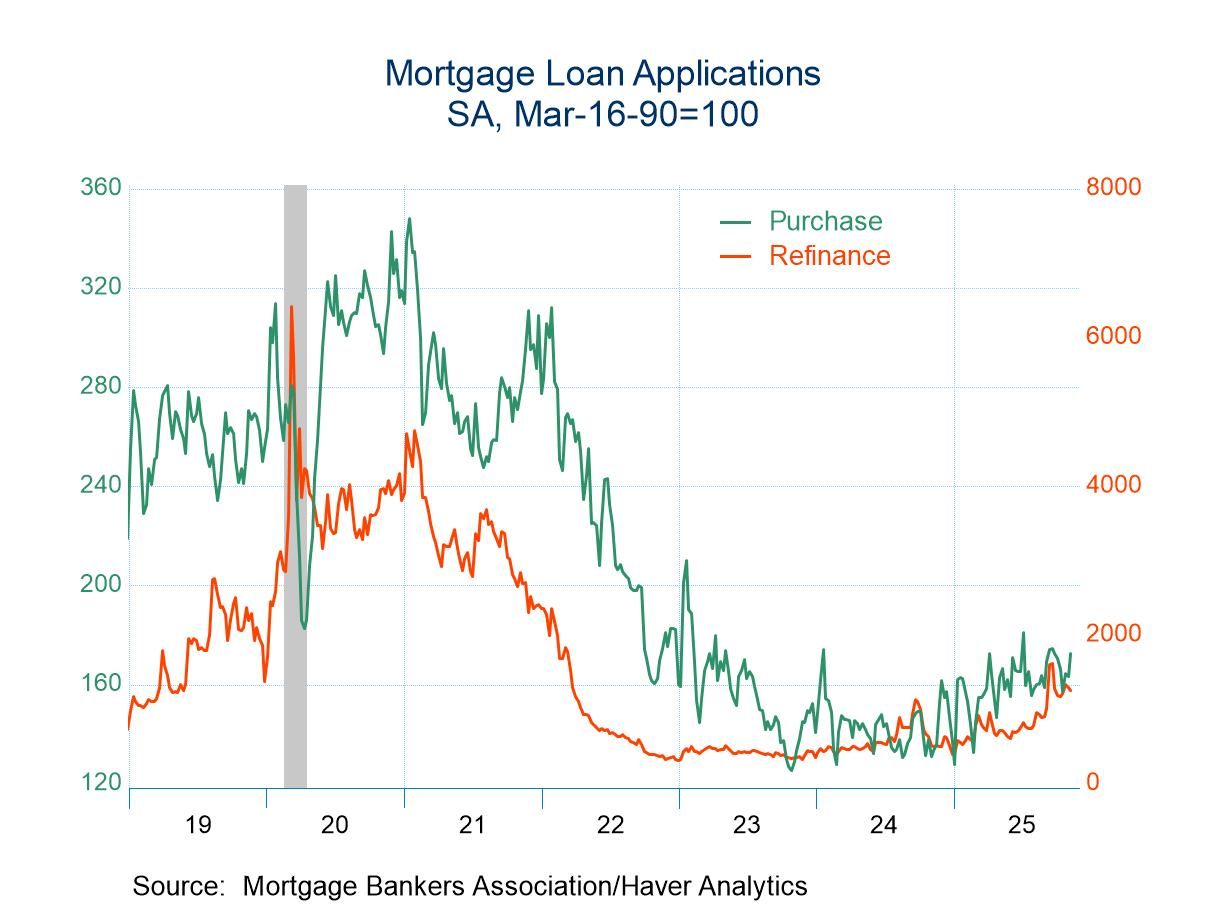U.S. Weekly Mortgage Applications & Interest Rates Edge Higher
by:Tom Moeller
|in:Economy in Brief
Summary
- Mortgage interest rates rise to three-week high.
- Purchase loans surge but refinancing declines.


The number of weekly mortgage loan edged 0.6% higher (73.7% y/y) during the week ended November 7 after falling 1.9% during the prior week and rising 7.1% one week earlier.
The effective interest rate on a 30-year fixed-rate mortgage rose to 6.52% after rough stability at 6.48% during the prior week. These rates stand below their January average of 7.20%. Rates on a 15-year fixed rate loan were 5.86% while interest rates on a 30-year JUMBO loan averaged 6.57%. Rates on a 5-year ARM eased to 5.82%.
Purchase loan applications last week increased 5.8% (29.6% y/y) after falling 0.6% in the prior week and rising 4.5% one week earlier. Applications to refinance an existing loan declined 3.4% (+146.5% y/y) following a 2.8% decline in the prior week and rising 9.3% one week earlier.
Loans to refinance an existing mortgage fell to 55.6% of total applications from 57.0% in the prior week. The percentage of total loans that were ARMs declined to 7.8% from 8.7% one week earlier.
The average loan size declined to $396,500 last week from $414,900. The size of conventional purchase loans declined to $431,400 from $435,100 while the size of refinanced loans declined to $368,700 from $399,700 one week earlier.
The Mortgage Bankers Association Survey covers 75% of all U.S. retail residential mortgage applications and has been conducted weekly since 1990. Respondents include mortgage bankers, commercial banks and thrifts. The base period and value for all indexes is March 16, 1990=100. The figures for weekly mortgage applications and interest rates are available in Haver’s SURVEYS database.
Tom Moeller
AuthorMore in Author Profile »Prior to joining Haver Analytics in 2000, Mr. Moeller worked as the Economist at Chancellor Capital Management from 1985 to 1999. There, he developed comprehensive economic forecasts and interpreted economic data for equity and fixed income portfolio managers. Also at Chancellor, Mr. Moeller worked as an equity analyst and was responsible for researching and rating companies in the economically sensitive automobile and housing industries for investment in Chancellor’s equity portfolio. Prior to joining Chancellor, Mr. Moeller was an Economist at Citibank from 1979 to 1984. He also analyzed pricing behavior in the metals industry for the Council on Wage and Price Stability in Washington, D.C. In 1999, Mr. Moeller received the award for most accurate forecast from the Forecasters' Club of New York. From 1990 to 1992 he was President of the New York Association for Business Economists. Mr. Moeller earned an M.B.A. in Finance from Fordham University, where he graduated in 1987. He holds a Bachelor of Arts in Economics from George Washington University.
More Economy in Brief
 Global| Feb 05 2026
Global| Feb 05 2026Charts of the Week: Balanced Policy, Resilient Data and AI Narratives
by:Andrew Cates






